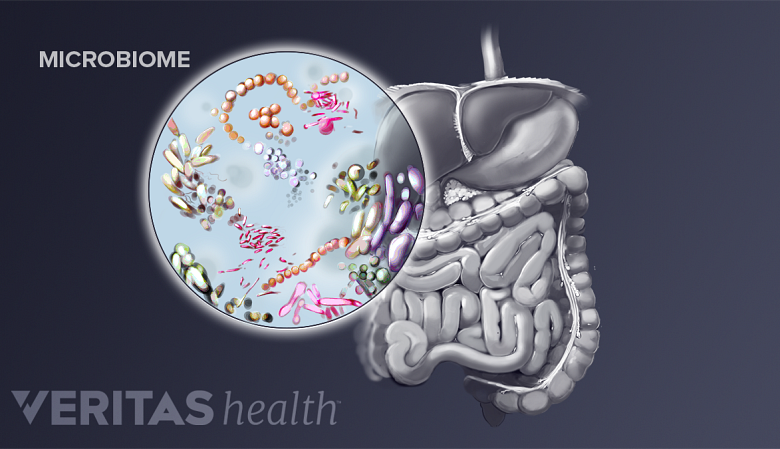Supplements are often used to treat fibromyalgia-related symptoms that have not been relieved by medications. A supplement may ease one especially challenging aspect of the condition—such as disrupted sleep—or have a more wide-ranging impact.
Probiotics support the gut microbiome, which can boost general health for those with fibromyalgia.
Blood tests can be used to determine deficiencies that may be addressed with supplements.
Information on the effectiveness of supplements is typically limited, in part because the U.S. Food and Drug Administration does not regulate supplements as it does medication. Variability in supplement ingredients can also make it difficult for researchers to compare results for people taking a certain supplement.
In This Article:
- Dietary Supplements for Fibromyalgia
- Magnesium, Melatonin, and Probiotics for Fibromyalgia
- Turmeric, Vitamin D, and Coenzyme Q10 for Fibromyalgia
Treating Pain and Other Symptoms
Individual experiences vary, but magnesium, melatonin, and probiotics are among supplements that have shown promise in the medical literature:
Magnesium. People with fibromyalgia are more likely than others to have low magnesium, and many doctors advise fibromyalgia patients to take this supplement. 1 Arranz LI, Canela MÁ, Rafecas M. Dietary aspects in fibromyalgia patients: results of a survey on food awareness, allergies, and nutritional supplementation. Rheumatol Int. 2012;32(9):2615-21.
See Doctors Who Treat Fibromyalgia
Magnesium, a mineral, occurs naturally in the body and in many foods and is important to human functioning. Foods high in magnesium include yogurt, dark leafy green vegetables, nuts, fish, and whole grains.
See An Anti-Inflammatory Diet for Arthritis
One study of 60 premenopausal women looked at the impact of taking magnesium citrate, an antidepressant, or a combination of both. When a daily 300 mg dose of the supplement was used on its own, most symptoms—including tender points and depression—decreased. When the same dose of the supplement was used with a daily 10 mg dose of the antidepressant amitriptyline, it eased every symptom but numbness. 2 Bagis S, Karabiber M, As I, Tamer L, Erdogan C, Atalay A. Is magnesium citrate treatment effective on pain, clinical parameters and functional status in patients with fibromyalgia?. Rheumatol Int. 2013;33(1):167-72.
See Characteristic Symptoms of Fibromyalgia
One small study at a fibromyalgia clinic monitored use of a magnesium chloride patch on women’s arms and legs. Participants were checked after two weeks, then four weeks, and reported improved quality of life. 3 Engen DJ, Mcallister SJ, Whipple MO, et al. Effects of transdermal magnesium chloride on quality of life for patients with fibromyalgia: a feasibility study. J Integr Med. 2015;13(5):306-13.
Magnesium is usually sold by itself, combined with calcium, or with both calcium and zinc.
Melatonin. This hormone is produced by your body and is important in regulating each individual's sleep/wake system. Melatonin is widely used by people who have fibromyalgia as well as those who don't. Some people with insomnia or sleep problems related to jet lag or irregular work schedules also take melatonin.
See Therapies for Treating Insomnia
Sleep difficulties are a frequent problem with fibromyalgia. People often sleep, but miss out on the deep sleep (described as "rapid eye movement, or REM sleep) needed to wake up feeling refreshed.
See Getting the Sleep You Need With Fibromyalgia
One six-week research study of 57 women showed significant improvements in sleep quality—and decreases in pain and other symptoms—when a 10 mg daily dose of melatonin was used by itself or with a 25 mg dose of the antidepressant amitriptyline. 4 De zanette SA, Vercelino R, Laste G, et al. Melatonin analgesia is associated with improvement of the descending endogenous pain-modulating system in fibromyalgia: a phase II, randomized, double-dummy, controlled trial. BMC Pharmacol Toxicol. 2014;15:40.
See Medications Used to Help Treat Insomnia
The best time of day to take melatonin varies with the type of sleep problem, so checking with the doctor is recommended.
Probiotics. These live cultures, sometimes called "good bacteria," can help digestive health as well as overall health. Like the bacteria that already exists in the gut, probiotics can be helpful in counteracting harmful bacteria. Probiotic supplements may address several health problems that often occur in fibromyalgia, including irritable bowel syndrome (IBS), vaginal yeast infections, depression, and anxiety.
See Integrative Arthritis Therapies and Nutrition
Yogurt and kefir (a drink similar to yogurt), may be best known for including live active cultures, but aged cheese and sauerkraut are other good food sources.
See Food and Fibromyalgia: What to Know
One 12-week clinical study of 186 patients compared the results for those taking a multi-strain probiotic with those taking a placebo. The daily dosage was 1 milliliter per kilogram (2.2 pounds). The severity of symptoms was reduced in participants taking the probiotic. 5 Sisson G, Ayis S, Sherwood RA, Bjarnason I. Randomised clinical trial: a liquid multi-strain probiotic vs. placebo in the irritable bowel syndrome – a 12 week double-blind study. Aliment Pharmacol Ther 2014; 40: 51–62, as cited in Moran C. and Shanahan F. (2014), Editorial: probiotics and IBS – where are we now? Aliment Pharmacol Ther, 40: 318. doi:10.1111/apt.12836.
See How to Create a Fibromyalgia-Friendly Diet
Many probiotic supplements should be kept refrigerated before use to ensure their effectiveness. Checking the instructions on the container is advised.
- 1 Arranz LI, Canela MÁ, Rafecas M. Dietary aspects in fibromyalgia patients: results of a survey on food awareness, allergies, and nutritional supplementation. Rheumatol Int. 2012;32(9):2615-21.
- 2 Bagis S, Karabiber M, As I, Tamer L, Erdogan C, Atalay A. Is magnesium citrate treatment effective on pain, clinical parameters and functional status in patients with fibromyalgia?. Rheumatol Int. 2013;33(1):167-72.
- 3 Engen DJ, Mcallister SJ, Whipple MO, et al. Effects of transdermal magnesium chloride on quality of life for patients with fibromyalgia: a feasibility study. J Integr Med. 2015;13(5):306-13.
- 4 De zanette SA, Vercelino R, Laste G, et al. Melatonin analgesia is associated with improvement of the descending endogenous pain-modulating system in fibromyalgia: a phase II, randomized, double-dummy, controlled trial. BMC Pharmacol Toxicol. 2014;15:40.
- 5 Sisson G, Ayis S, Sherwood RA, Bjarnason I. Randomised clinical trial: a liquid multi-strain probiotic vs. placebo in the irritable bowel syndrome – a 12 week double-blind study. Aliment Pharmacol Ther 2014; 40: 51–62, as cited in Moran C. and Shanahan F. (2014), Editorial: probiotics and IBS – where are we now? Aliment Pharmacol Ther, 40: 318. doi:10.1111/apt.12836.











